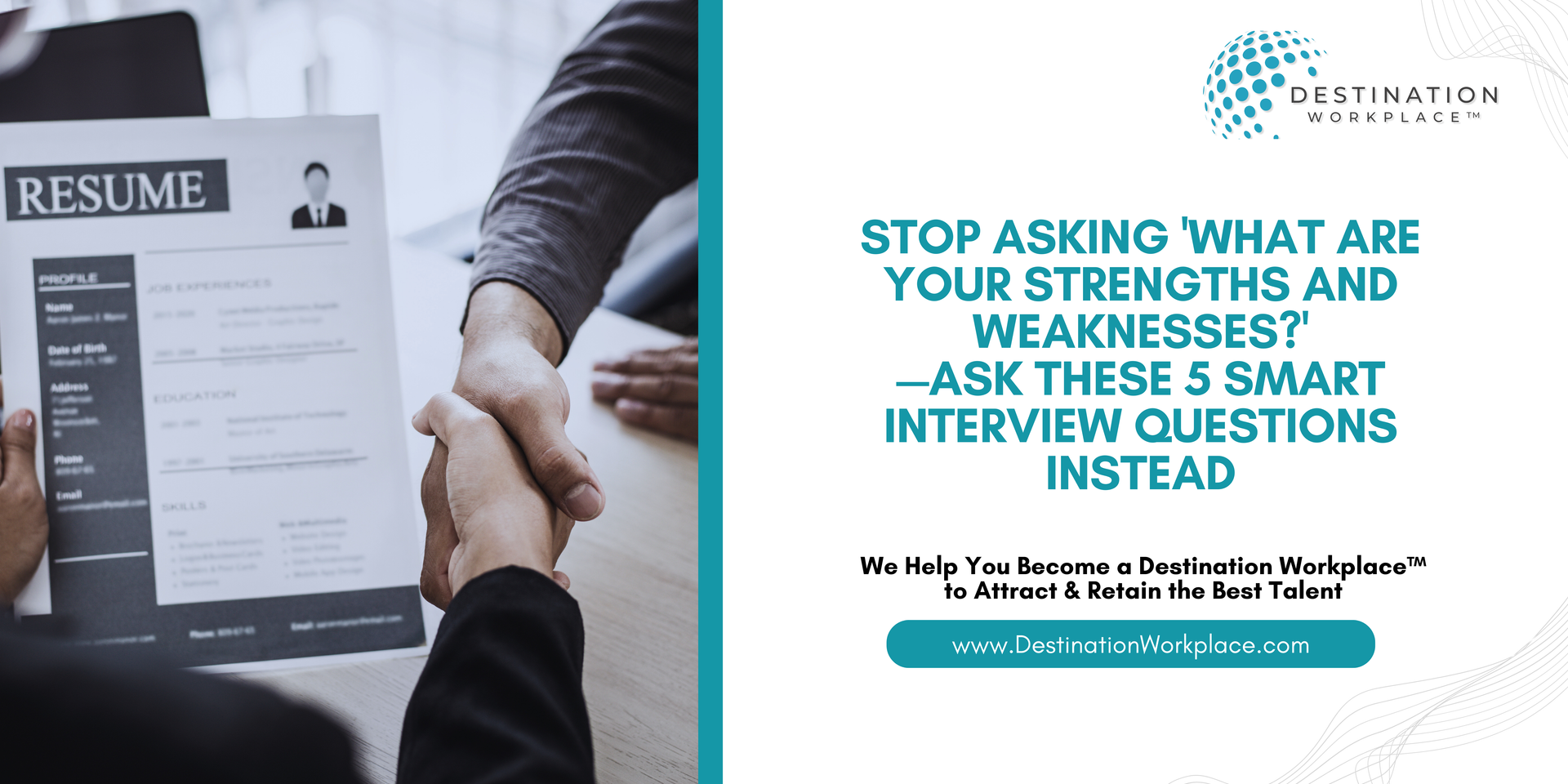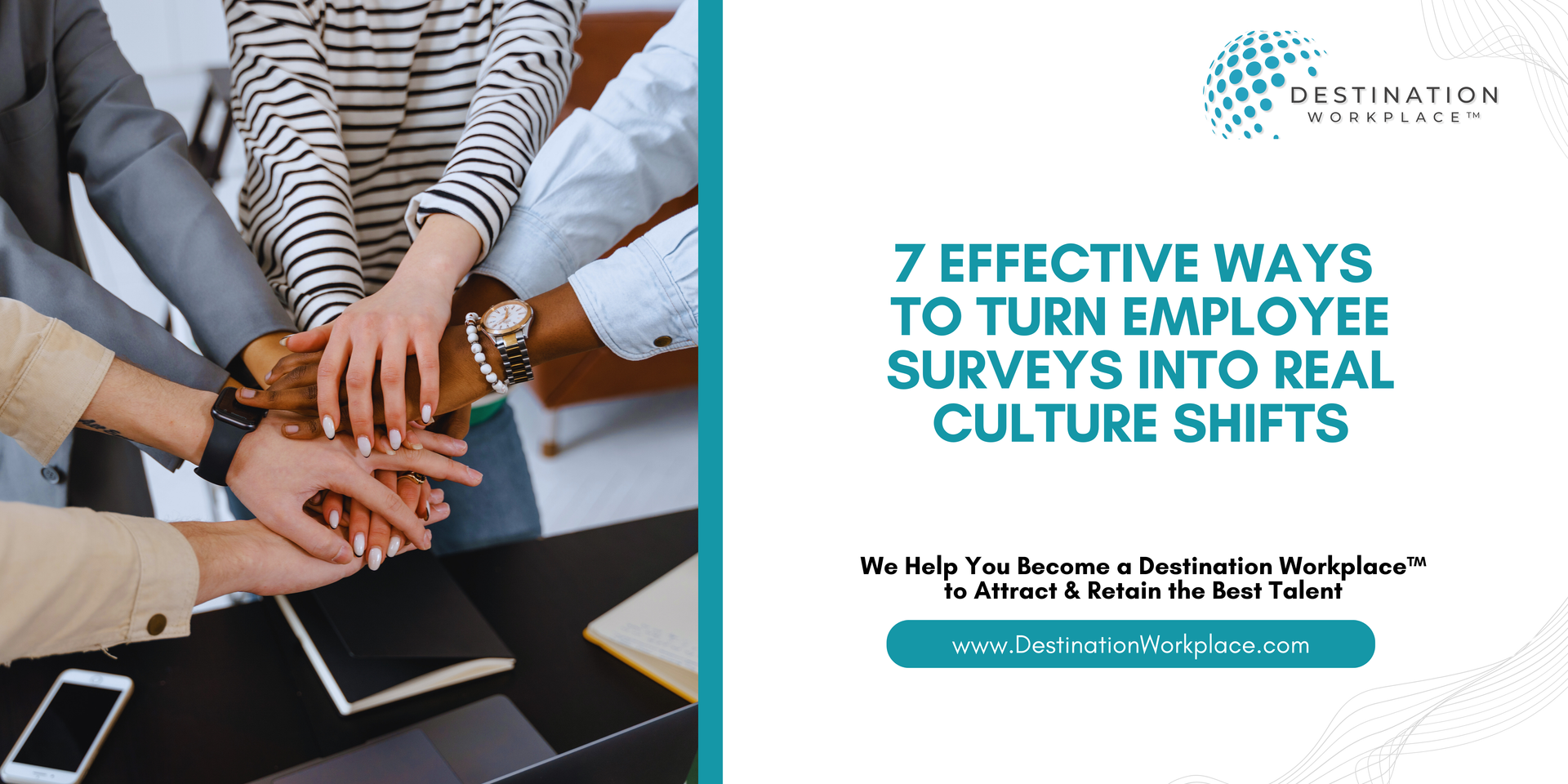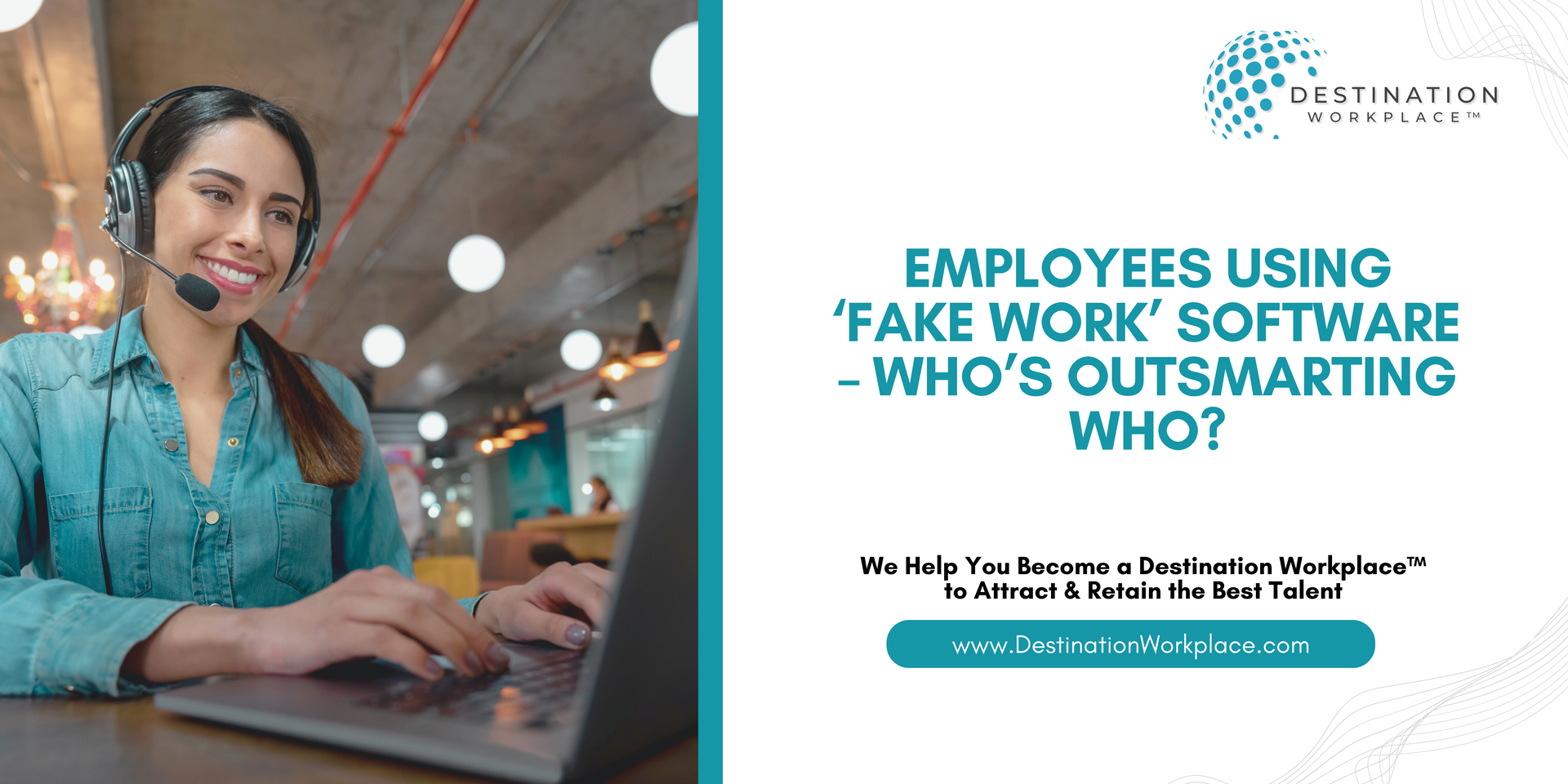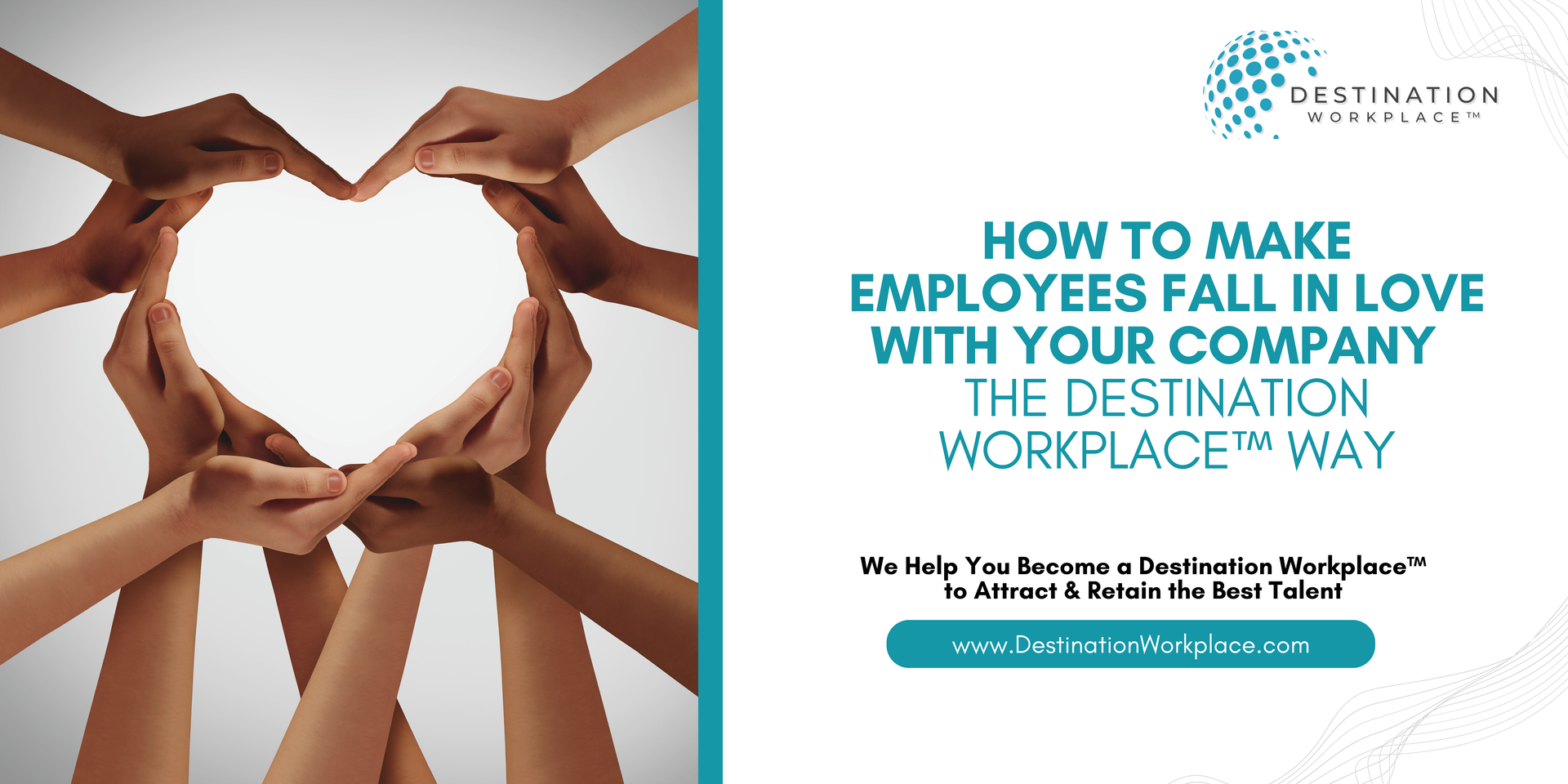The Power of Emotional Intelligence and Why it’s the Key to Effective Leadership Today

In today’s fast-paced, interconnected workplace, the qualities that make a great leader have evolved beyond technical knowledge and decision-making skills. Emotional intelligence (EQ) has emerged as a critical leadership trait, making it more important than ever for leaders to not only understand their own emotions but also empathize with those of their employees. According to research from TalentSmart, emotional intelligence accounts for nearly 58% of performance in all types of jobs and is one of the strongest predictors of leadership success.
As companies strive to create a Destination Workplace™, emotional intelligence plays a central role in improving communication, building trust, and fostering a positive workplace culture where employees can perform at their best. This article explores five key reasons why emotional intelligence is vital for leadership and provides actionable tips to enhance your EQ and lead with greater empathy and effectiveness.
1. EQ Builds Trust and Strengthens Relationships
Trust is the cornerstone of any productive workplace relationship, and emotional intelligence is essential for building it. Leaders who are self-aware, empathetic, and capable of managing their own emotions are better equipped to create a company culture of transparency and trust. When employees trust their leaders, they are more likely to feel secure, valued, and motivated to go the extra mile.
➤Take the example of Satya Nadella, CEO of Microsoft. When Nadella took over leadership, he focused on empathy and understanding his employees' perspectives. His emotionally intelligent approach helped transform Microsoft’s rigid, competitive business culture into one centered on collaboration and innovation. By emphasizing emotional intelligence, Nadella built trust, which in turn revitalized the company and improved its performance.
Tip for Success: To strengthen your emotional intelligence and build trust, practice active listening. Pay attention to verbal and non-verbal cues from your team, and respond with empathy. Ensure that your actions align with your words, and consistently communicate with honesty and openness.
2. EQ Improves Communication and Collaboration
Effective communication is the backbone of good leadership, and emotional intelligence enhances a leader’s ability to communicate with clarity and empathy. Leaders with high emotional intelligence are attuned to the emotional states of their team members, which allows them to tailor their messages and responses in a way that resonates with others.
According to a report from the Harvard Business Review, emotionally intelligent leaders are more likely to foster open and constructive communication, which leads to better collaboration and problem-solving. This is particularly important in today’s diverse, often remote work environments where misunderstandings and miscommunication can easily arise.
Tip for Success: Develop your emotional intelligence by honing your ability to read emotional cues and asking clarifying questions. Take the time to understand the emotional drivers behind your team's concerns or feedback, as well as conduct communication workshops to improve workplace dynamics. This will not only make your communication more effective but also strengthen collaboration by ensuring everyone feels heard and understood.
3. EQ Enhances Employee Engagement and Retention
Emotionally intelligent leaders are not only in tune with their emotions but are also capable of recognizing the emotional needs of their employees. This ability to empathize helps leaders provide the right support and motivation, directly impacting employee engagement and retention.
Gallup research shows that employees who feel their managers care about their well-being are 27% more likely to stay with their company. Emotionally intelligent leaders make employees feel valued, understood, and supported, leading to higher levels of job satisfaction and loyalty.
➤Consider the case of Airbnb’s CEO Brian Chesky. During the challenges of the COVID-19 pandemic, Chesky demonstrated high emotional intelligence by openly communicating with his employees about tough decisions, such as layoffs, in a compassionate and transparent way. He went as far as offering generous severance packages and continued health coverage to those affected. His empathetic approach helped retain trust and loyalty among the remaining workforce, ensuring the company stayed resilient during tough times.
Tip for Success: Regularly check in with your employees not just about their work but about their well-being. Show genuine concern for their emotional and mental health, and offer support when needed. An emotionally engaged leader will see higher levels of commitment and enthusiasm from their team.
4. EQ Helps You Manage Conflict Effectively
Workplace conflicts are inevitable, but leaders with high emotional intelligence are better equipped to manage them effectively. Emotional intelligence helps leaders navigate tense situations by remaining calm, understanding different perspectives, and finding solutions that acknowledge everyone’s feelings. Leaders who can manage their own emotions and maintain control in challenging circumstances can de-escalate conflicts before they escalate into larger issues.
Emotionally intelligent leaders can also foster a culture of open communication where conflicts are addressed constructively rather than suppressed. This ability to manage conflict leads to a healthier, more productive workplace.
Tip for Success: During conflicts, focus on identifying the root cause of the disagreement rather than getting caught up in the emotional intensity. Use active listening and empathy to understand all sides of the situation. Provide leadership training that focuses on conflict/resolution skills and coaching methods. By maintaining emotional control and focusing on solutions, you can resolve conflicts in a way that strengthens, rather than damages, workplace relationships.
5. EQ Drives Innovation and Adaptability
In an ever-changing business landscape, emotional intelligence is crucial for driving innovation and fostering adaptability. Leaders who are emotionally intelligent create an environment where employees feel safe to take risks, offer new ideas, and adapt to changes without fear of judgment or failure.
A study by Google’s Project Aristotle revealed that psychological safety—the belief that one will not be punished or humiliated for speaking up with ideas, questions, or concerns—is one of the top drivers of successful teams. Emotionally intelligent leaders foster this kind of environment by encouraging openness, supporting their team’s development, and leading with empathy during times of change.
Tip for Success: To drive innovation and adaptability, encourage a culture of psychological safety within your team. Acknowledge and appreciate the emotional aspects of change, and provide reassurance and guidance during transitions. Celebrate creative thinking, and be open to learning from mistakes without blaming individuals.
In a world where leadership is more complex than ever, emotional intelligence has become an indispensable asset. Leaders who develop their emotional intelligence can build trust, improve communication, enhance employee engagement, manage conflicts, and drive innovation—all while fostering a positive and productive workplace culture. By honing your emotional intelligence, you can lead with greater empathy and effectiveness, transforming your company into a Destination Workplace where employees are inspired to thrive.
Creating a winning company culture takes effort, but it's well worth it, and company culture happens to be our area of expertise. We help you become a Destination Workplace™ so you can attract and retain the best talent in this hyper-competitive marketplace. Contact us to learn about our leadership development, culture development, corporate wellness programs and more!
The Destination Workplace™ Team
Destination Workplace™












